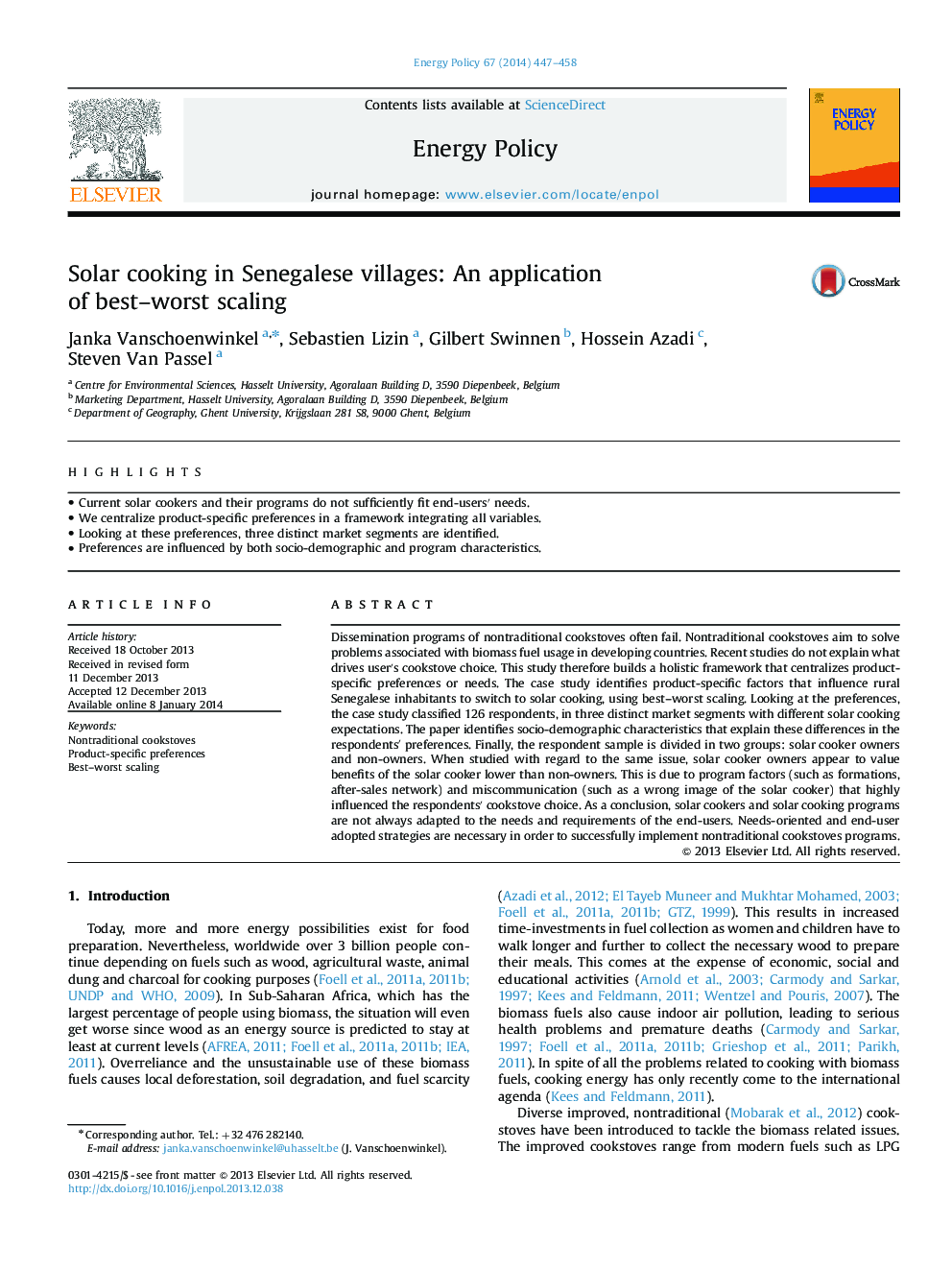| Article ID | Journal | Published Year | Pages | File Type |
|---|---|---|---|---|
| 7402486 | Energy Policy | 2014 | 12 Pages |
Abstract
Dissemination programs of nontraditional cookstoves often fail. Nontraditional cookstoves aim to solve problems associated with biomass fuel usage in developing countries. Recent studies do not explain what drives user's cookstove choice. This study therefore builds a holistic framework that centralizes product-specific preferences or needs. The case study identifies product-specific factors that influence rural Senegalese inhabitants to switch to solar cooking, using best-worst scaling. Looking at the preferences, the case study classified 126 respondents, in three distinct market segments with different solar cooking expectations. The paper identifies socio-demographic characteristics that explain these differences in the respondents' preferences. Finally, the respondent sample is divided in two groups: solar cooker owners and non-owners. When studied with regard to the same issue, solar cooker owners appear to value benefits of the solar cooker lower than non-owners. This is due to program factors (such as formations, after-sales network) and miscommunication (such as a wrong image of the solar cooker) that highly influenced the respondents' cookstove choice. As a conclusion, solar cookers and solar cooking programs are not always adapted to the needs and requirements of the end-users. Needs-oriented and end-user adopted strategies are necessary in order to successfully implement nontraditional cookstoves programs.
Keywords
Related Topics
Physical Sciences and Engineering
Energy
Energy Engineering and Power Technology
Authors
Janka Vanschoenwinkel, Sebastien Lizin, Gilbert Swinnen, Hossein Azadi, Steven Van Passel,
